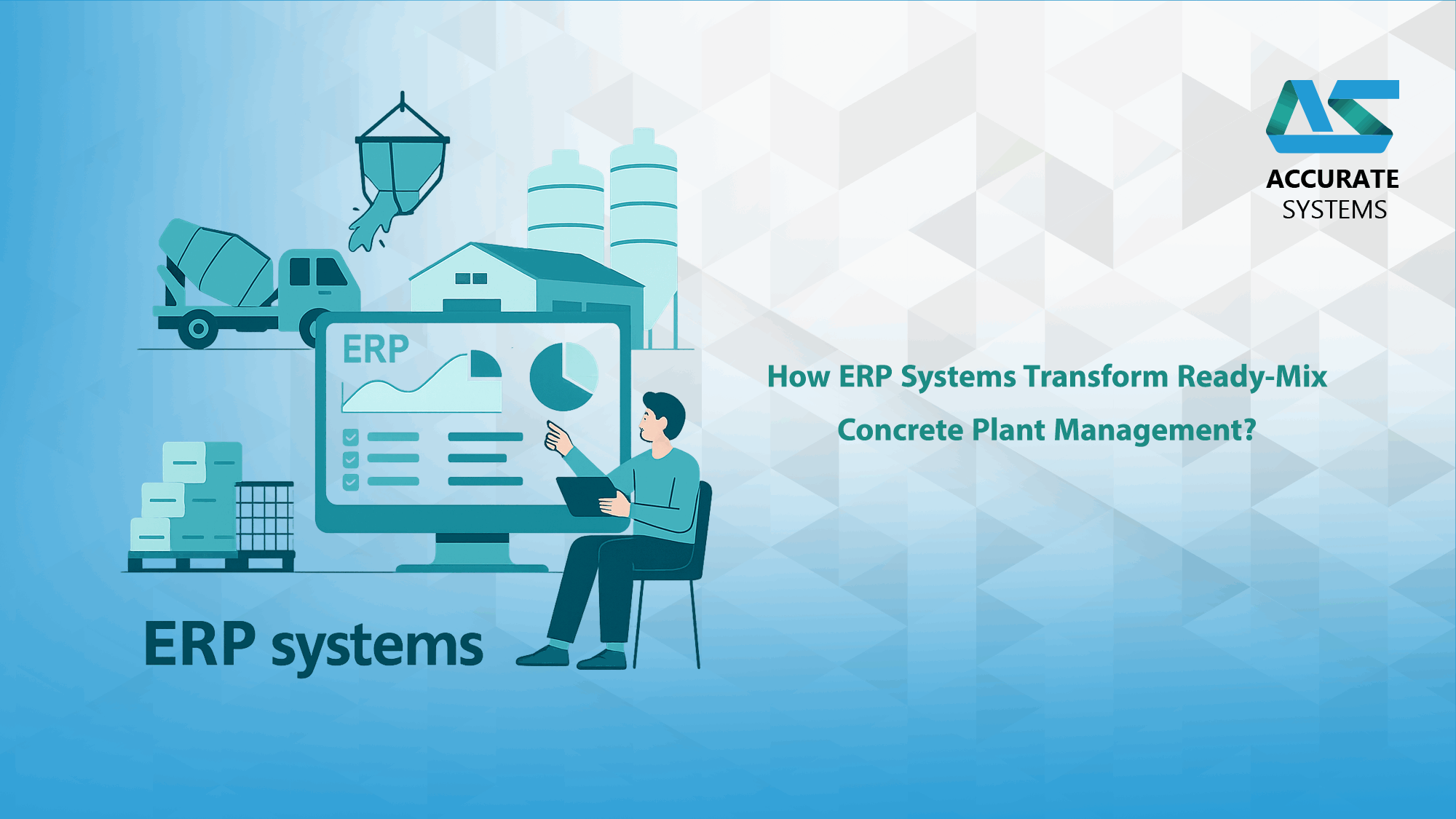Introduction: Digital Transformation in the Concrete Industry
Managing a ready-mix concrete (RMC) plant involves more than just producing concrete—it requires precise coordination between sales, inventory, production, quality control, and delivery. In a fast-paced and competitive industry, delays, miscommunication, or material shortages can lead to costly consequences.
To overcome these challenges, more ready-mix concrete companies are adopting ERP systems for concrete plant management. These systems centralize operations, automate workflows, and improve decision-making through real-time data.
In this article, you’ll discover:
-
The main challenges in managing concrete batching plants
-
What an ERP system is and how it works in the RMC sector
-
Why traditional tools are outdated
-
The top benefits of ERP in ready-mix concrete operations
Common Challenges in Ready-Mix Concrete Plant Management
Concrete batching plants face several complex challenges that affect operational efficiency and customer satisfaction:
1. Complicated Scheduling and Production
Concrete production must meet specific requirements for mix design, quantity, and delivery timing. Delays in batching can create a ripple effect, causing idle trucks, unhappy clients, and wasted material.
2. Lack of Real-Time Inventory Visibility
Raw materials like cement, aggregates, and additives are consumed quickly. Without a system to track usage in real time, businesses face stockouts, overstocking, and poor procurement planning.
3. Inefficient Delivery and Fleet Management
Fresh concrete has a short usable lifespan. Dispatching delivery trucks on time and optimizing routes is critical. Manual tracking methods are unreliable, leading to late deliveries and material wastage.
4. Inaccurate Costing and Pricing
Without automated job costing, it’s difficult to track the true cost per cubic meter of concrete. Pricing errors can result in reduced profit margins or customer disputes.
5. Manual Documentation and Compliance Issues
Batch reports, invoices, mix logs, and delivery receipts must be accurate and accessible. In markets like Saudi Arabia, companies must also meet ZATCA e-invoicing regulations. Manual paperwork often leads to errors and delays.
What Is an ERP System and How Does It Work in Concrete Plants?
An ERP (Enterprise Resource Planning) system is a digital platform that integrates all business processes in one centralized system. For the ready-mix concrete industry, ERP systems provide tools to manage:
-
Sales and order processing
-
Batch production and quality control
-
Inventory and material tracking
-
Dispatching and fleet logistics
-
Finance and accounting
-
Regulatory compliance and reporting
With an ERP system, concrete producers can monitor operations in real time, automate manual processes, and ensure better collaboration between departments.
Why Traditional Methods No Longer Work
Many concrete businesses still rely on spreadsheets, paper forms, phone calls, and separate software tools. These outdated methods create major limitations:
❌ No centralized data
Information is scattered across systems, making it hard to get a real-time overview.
❌ High error rates
Manual data entry leads to frequent mistakes in inventory, orders, and delivery records.
❌ Poor coordination
Without an integrated system, departments like sales, production, and dispatch often work in silos.
❌ Limited scalability
As your operations grow, spreadsheets and manual tools can’t keep up with the complexity.
Benefits of ERP in the Ready-Mix Concrete Industry
Investing in an ERP system for your concrete batching plant delivers immediate and long-term value:
✅ 1. Centralized Information
All departments—sales, production, logistics, and accounting—access real-time, unified data from one system.
✅ 2. Streamlined Batch Scheduling
Orders are directly linked to production schedules and mix designs. Batches are planned with precision, reducing waste and delays.
✅ 3. Real-Time Inventory Management
ERP systems track raw material levels in real time and trigger automatic reorders when stocks run low.
✅ 4. Optimized Delivery and Fleet Tracking
With GPS integration, ERP software helps dispatchers assign trucks, monitor deliveries, and optimize routes—minimizing downtime and fuel costs.
✅ 5. Accurate Cost Tracking
The system calculates job-specific costs and margins, helping you price competitively without losing profit.
✅ 6. Faster Invoicing and Compliance
Generate digital delivery notes and ZATCA-compliant e-invoices automatically. Keep all your records secure and audit-ready.
✅ 7. Business Intelligence and Reports
Access real-time dashboards and custom reports to monitor plant performance, track KPIs, and support strategic decisions.
Conclusion: ERP Is the Future of Concrete Plant Management
The ready-mix concrete industry is evolving, and traditional tools can no longer keep pace. ERP systems are becoming essential for batching plant automation, cost control, and customer satisfaction.
By adopting an ERP system tailored for concrete production, your business can:
-
Reduce costs
-
Increase efficiency
-
Deliver on time, every time
-
Stay compliant with industry regulations
Whether you’re managing a single plant or a nationwide operation, ERP offers the foundation for growth, scalability, and long-term success.

Leave A Comment